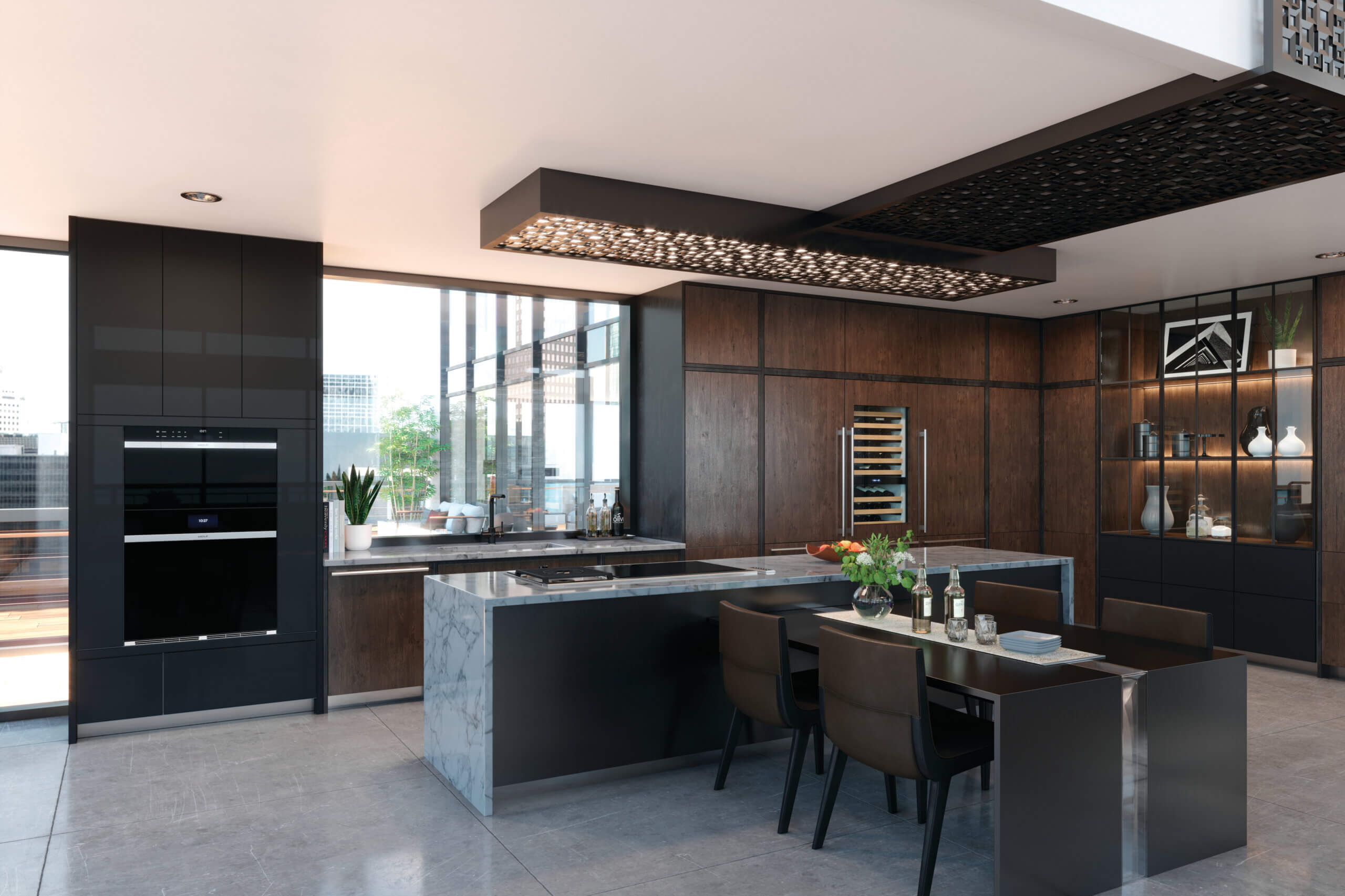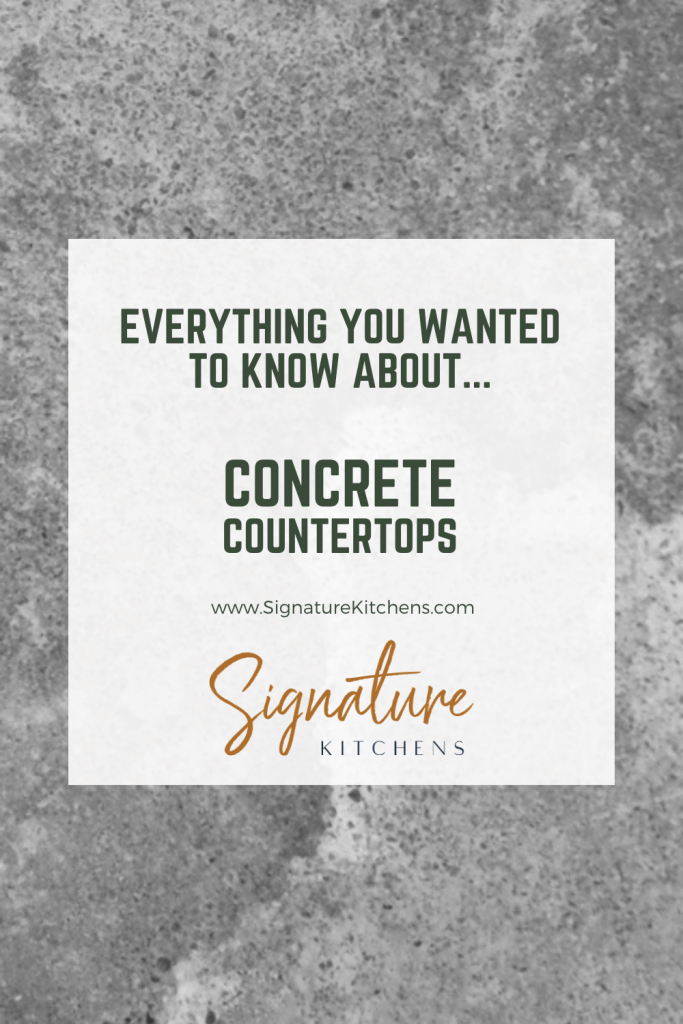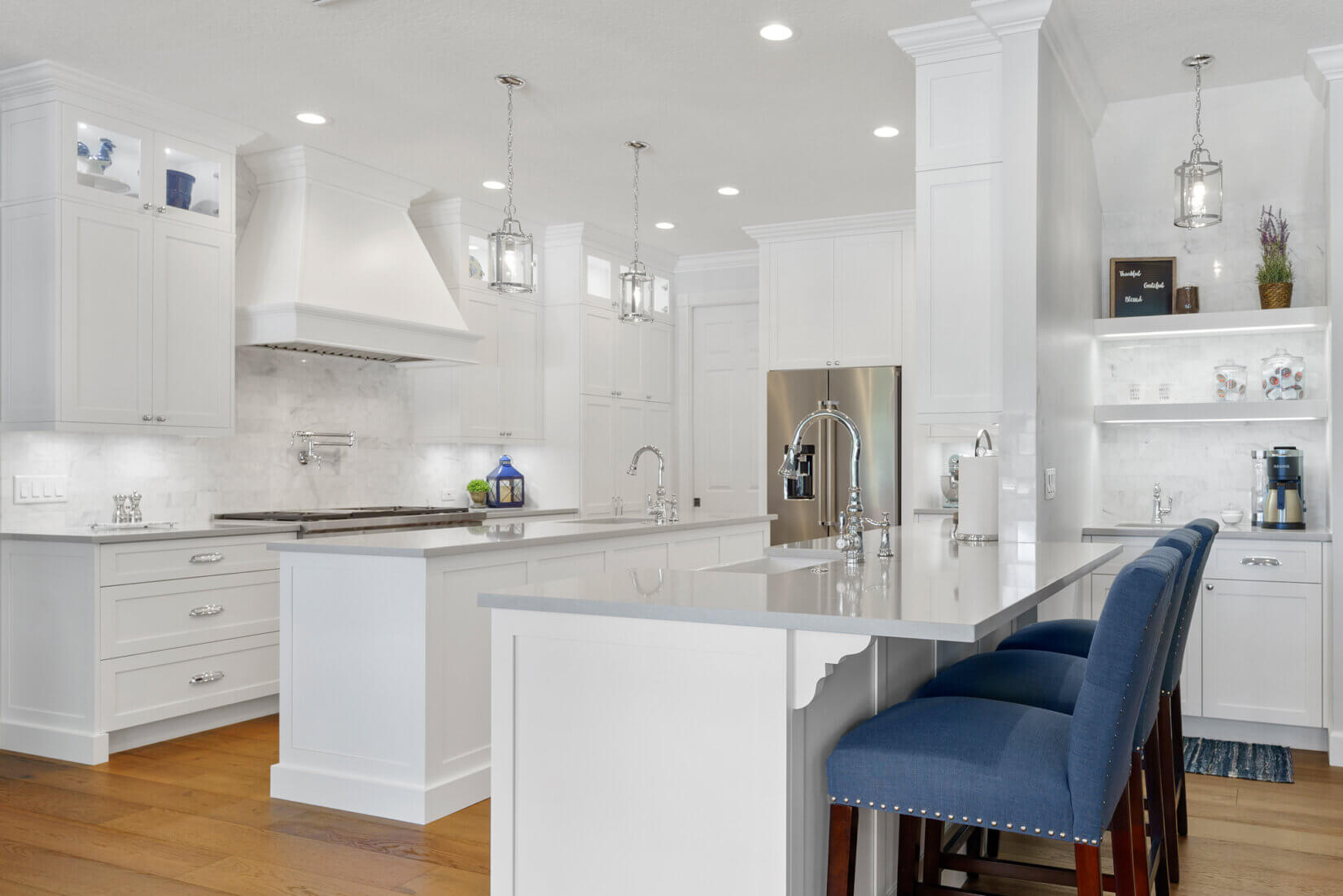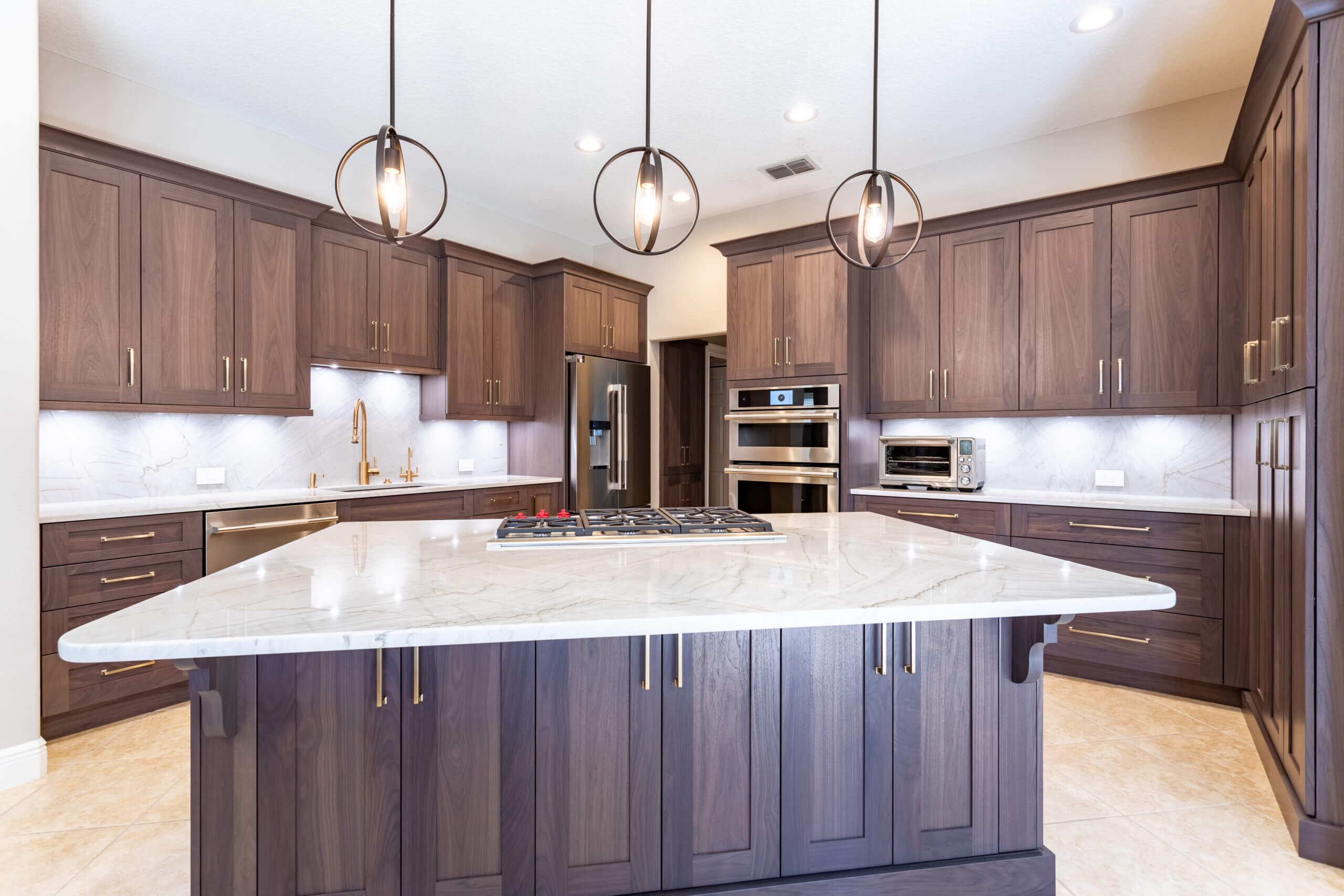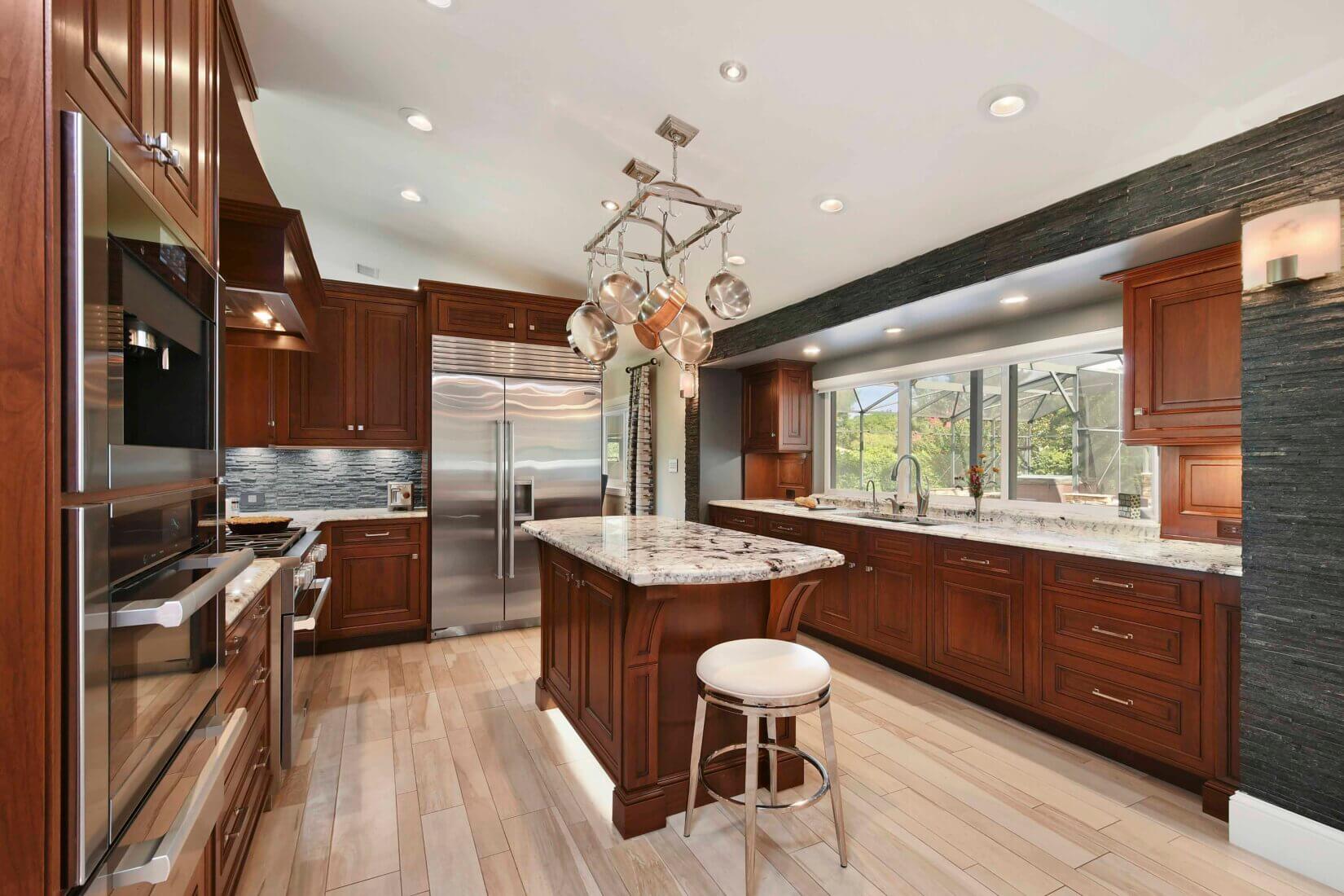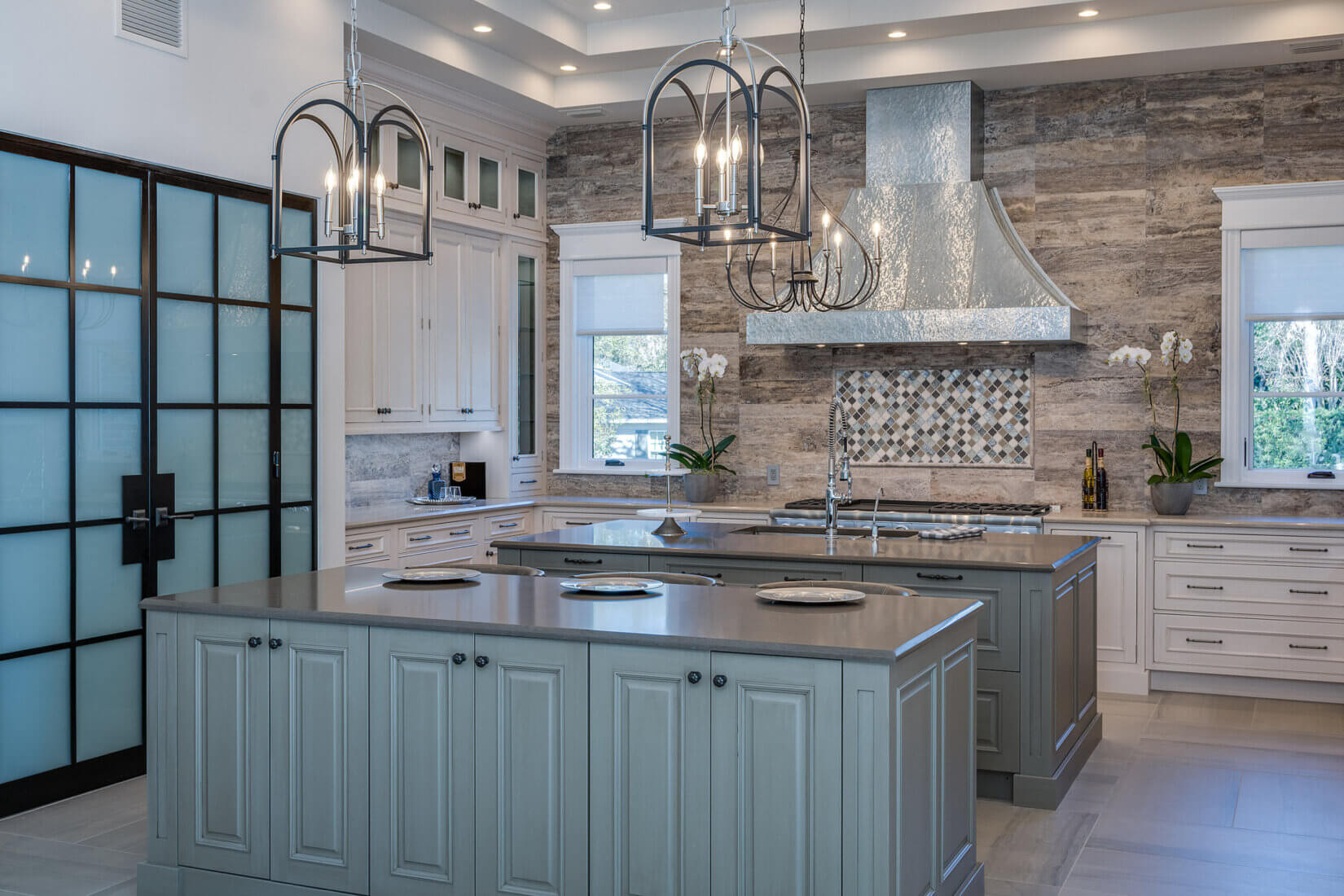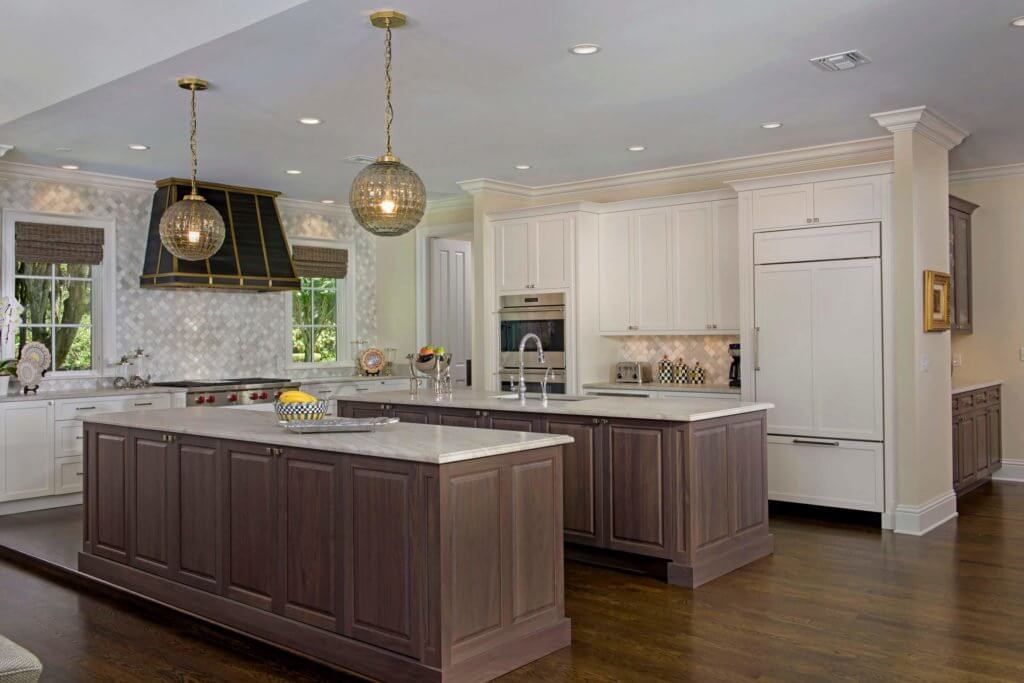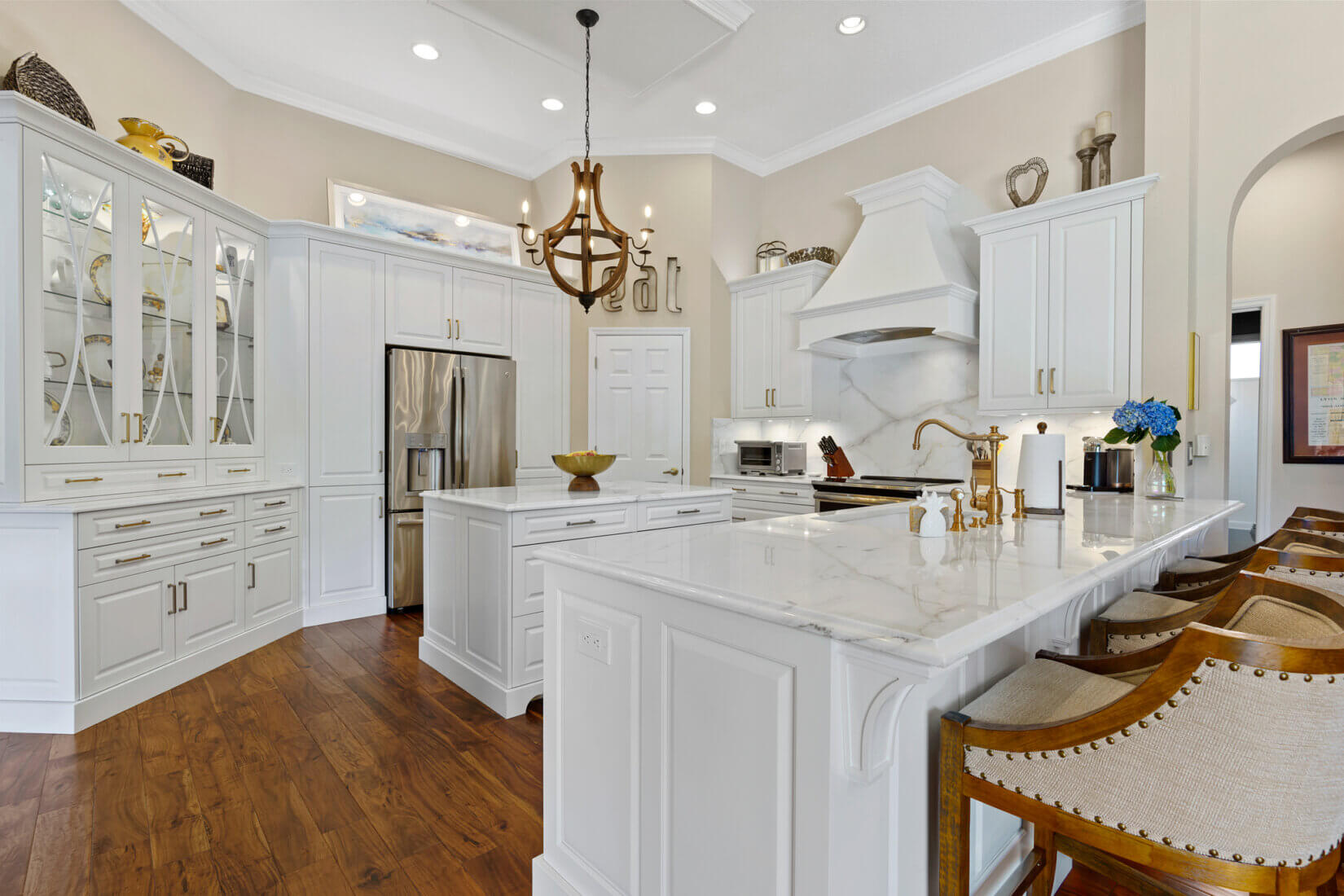Concrete Countertops
In the modern world, there is a wide diversity of different materials ranging from the historical favourite marble and granite to more modern inventions such as quartz. You might be wondering why you should instead choose to opt for a more traditionally mundane material such as concrete. Concrete countertops used to be a historic norm until they became phased out in favour of other materials such as marble and granite which hare considered much more beautiful looking and prestigious. Today, however, concrete countertops are becoming increasingly popular due to the fact that they have become much lighter, stronger and far more visually appealing. This had made concrete countertops a much more practical option for you to consider for your countertop needs today than it would have been a few years ago. So, in case you’re interested in choosing whether or not you want to consider a concrete countertop this guide will help you out.
Relative popularity of Concrete Countertops
Concrete was once an extremely popular choice for countertops although it fell out of fashion in the past few decades in favour of marble and granite. In the early twenty-first century, however, it has become increasingly popular due to the fact that it has become a more suitable material for countertop construction.
It still remains, however, one of the least popular materials when it is compared with marble, granite, quartz or quartzite, so concrete does not hold a significant portion of the U.S countertop sales market with a market share little over 5%.
In the near future though, concrete is expected to become a much more popular material due to the aforementioned advancements being made within it. So, if you’re someone who’s very interested in taking advantage of emerging trends in the countertop market, the revival of concrete is definitely a very noteworthy trend that you may find to be to your advantage due to the advantages of concrete.
The Different Types of Concrete Countertops
Concrete is a composite material made out of a mixture of cement and an aggregate which could be rock, sand or cement. Varying the exact composition of the materials used in concrete will produce concrete of different varieties.
With respect to countertops specifically, there are essentially four main types of mixes:
- All-Sand Mixes
- Aggregate-Based Mixes
- Polymer-Based Mixes
- GFRC
These different varieties all produce concrete of varying levels of stiffness and color vibrancy. Since concrete is a man-made material, unlike a naturally occurring rock such as marble or granite, there is a very degree of customizability with respect to concrete. Concrete can be molded into virtually any shape or size, it can be easily molded to have a place for kitchen sinks, for example. It is also possible to customize your concrete mix to produce the right kind of texture and appearance that you want in addition to also being able to change the material’s color with relative ease. This high degree of customizability is one of the main advantages of concrete and a major reason why it’s growing in popularity these days.
The most popular colors for concrete are a cool grey and white, although it can be customized to yield almost any color combination. Although concrete countertops are not as widely used currently, the most popular concrete countertops are custom-made and typically of a plain-grey or white color.
The Cost of Concrete Countertops
Unfortunately, when it comes to cost, concrete tends to be a very premium material with relatively high rates that depend upon the exact mix being used. For example, in the U.S state of Florida costing anywhere between $62 to $125 per square foot which makes it far more expensive than more common materials such as quartz, marble and granite.
The reason why concrete costs much higher is due to the fact that producing a concrete kitchen countertop involves a high degree of artistic talent and customized style. So, much of the cost has more to do with the artistic ability that goes into producing it rather than the cost of the material itself.
For this reason, concrete is a much more expensive material, and that has led to it becoming a very premium option for most people. If you don’t have a high budget, it would probably better to avoid concrete, but if you’re someone who is willing to spend the extra dollar and is committed to having an entirely customized kitchen countertop, concrete could be the right choice for you.
The Relative Hardness of Concrete Countertops
Hardness is one of the primary considerations that you should take note off when shopping for a kitchen countertop since you will require a material that is hard enough to withstand the daily pressures that you will expose it too without being scratched or damaged.
With respect to concrete, since it is produced using cement and aggregates which usually also consist of very hard rocks it is a generally very hard material. Although the exact degree of hardness cannot be quantified as easily it can be with natural materials. The exact hardness of a concrete countertop will depend largely on the mixture of materials used to produce it. Concrete that is produced using a high volume of sandstone aggregate, for example, will be much harder than a mixture produced using weaker materials.
Concrete is much stronger, and harder, than some naturally occurring minerals such as limestone and marble, so you can be quite sure knowing that your concrete countertop is very difficult to break. Additionally, another advantage of concrete is that it is one of the very few hard materials that can be easily molded to produce customized textures. If you want to have a very stylistic and personally customized countertop that’s not only extremely durable but also vibrant in color and intricate in design then concrete is probably a very good choice for you.
How Easily Damaged are Concrete Countertops
Concrete is a very hard and durable material. After all, there’s a reason sidewalks are made using it, but it is still possible to cause it damage. Using power tools or industrial equipment on your concrete countertop will cause it some serious damage, but more ordinary items such as kitchen utensils and pots and pans will not cause any issues.
Concrete is scratch-resistant although it has been noted that concrete countertops are somewhat vulnerable to cracking which is possible during the construction process rather than while they are used. The best way to avoid potentially cracking your countertop is by using an appropriate sealant and re-sealing your countertop annually.
The biggest of concrete, however, is the fact that it is a very porous material which means that once liquids penetrate its surface it is extremely difficult to remove them. Being a porous material necessitates that any spills made on the counter should be cleaned up immediately as concrete is not very stain-resistant.
Ultimately though, as long as a concrete countertop is regularly re-sealed, appropriately cleaned and does not have liquids constantly spilt upon, it will last for a very long period of time which makes concrete a much more durable, and difficult to damage material, than certain natural minerals such as marble which is far more susceptible to damage from liquids.
Temperature Resistance of Concrete Countertops
Temperature resistance is also a very important consideration to make when choosing a countertop material since you don’t want to have to worry about ruining countertop while cooking your food.
Concrete itself is a very temperature resistant material, however, since it is a porous one it requires a sealer and more often than not, the sealer used will not be able to withstand high temperatures. You cannot safely place a hot pot or plan upon the surface of a concrete countertop without potentially causing damage to the sealant. It is best to use metal trivets to minimize the damage.
Maintenance of Concrete Countertops
Concrete countertops do require a relatively high level of maintenance. They have to be cleaned and re-sealed regularly else they will lose their appearance and durability. This results in concrete countertops having a relatively high maintenance cost over time when compared to other materials such as marble.
Additionally, since concrete countertops are made using a sealant, they cannot be cleaned using common household cleaning items such as bleach, ammonia, Windex and Vinegar as their PH levels will cause damage to the sealant and ultimately causing damage to your countertop’s surface.
Additionally, concrete countertops are also vulnerable to etching, so it is extremely important to clean over any spills on them.
Cleaning a concrete countertop, however, is thankfully not a very difficult process as regular soap and water are sufficient.
Overall, concrete is a fairly expensive material with respect to maintenance costs due to its porous nature and the need for constant resealing. If high maintenance costs are something that you dread, which is quite understandable, then it is probably not a good choice for you.
Pros of Concrete Countertops
Customizable Textures and Shapes
Concrete can be customized into various textures and shapes which allow for a great degree of customizability not possible with natural materials.
Diverse Colors
It is possible to color and shade concrete in a diverse number of ways, so it is a material whose appearance can be greatly altered according to personal taste and interest.
Highly Durable
Concrete is not easily damaged and will last a very long period of time as long as it is properly maintained and not exposed to high temperatures or excessive amounts of force.
Can be Used Both Outside and Inside
Concrete is used for many outdoor purposes such as sidewalks and building construction, so it is possible to use for an outdoor countertop.
It Can Have Additional Decorations
It is possible to add additional decorations to a concrete countertop in the form of additional jewels, materials or other décor items that provide some individual flair and artistic expression which is not possible with other materials.
Cons of Concrete Countertops
Expensive
Concrete is a very expensive material both in terms of its initial purchase and installation costs as well as maintenance costs. So, it is not budget-friendly.
High Maintenance
As a porous material, concrete needs to be regularly re-sealed in order to avoid damage. It must also be cleaned appropriately else it will suffer additional damages that are costly to repair.
Heavy
Concrete is a very heavy material so placing a concrete countertop on top of kitchen cabinets or cupboards, for example, will produce a lot of force upon them, so it is necessary to make sure that your cupboards and cabinets are designed to withstand the weight.
Repairs Are Not DIY Friendly
If your concrete countertop suffers from damage, you will most likely require the services of a specialist in order to repair it. It is very difficult to repair concrete by oneself, so repairing is not only a very difficult process but also one that will require a lot of monetary investment.
Hairline Cracks
Due to the fact that concrete tends to shrink over time, a concrete countertop will sometimes develop small hairline fractures. This may or may not be an issue for you as some regard them to be a source of textural variety.
